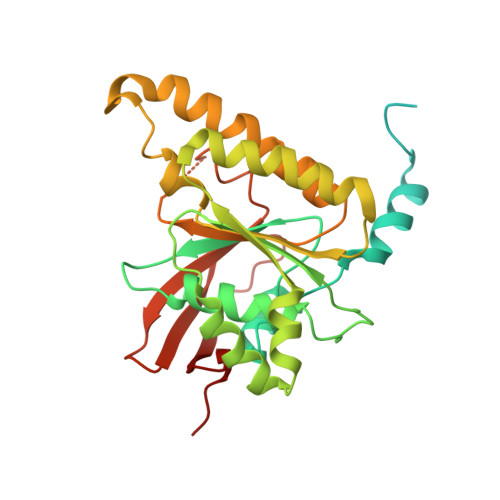Structural and functional analyses of the DMC1-M200V polymorphism found in the human population
Hikiba, J., Hirota, K., Kagawa, W., Ikawa, S., Kinebuchi, T., Sakane, I., Takizawa, Y., Yokoyama, S., Mandon-Pepin, B., Nicolas, A., Shibata, T., Ohta, K., Kurumizaka, H.(2008) Nucleic Acids Res 36: 4181-4190
- PubMed: 18566005
- DOI: https://doi.org/10.1093/nar/gkn362
- Primary Citation of Related Structures:
2ZJB - PubMed Abstract:
The M200V polymorphism of the human DMC1 protein, which is an essential, meiosis-specific DNA recombinase, was found in an infertile patient, raising the question of whether this homozygous human DMC1-M200V polymorphism may cause infertility by affecting the function of the human DMC1 protein. In the present study, we determined the crystal structure of the human DMC1-M200V variant in the octameric-ring form. Biochemical analyses revealed that the human DMC1-M200V variant had reduced stability, and was moderately defective in catalyzing in vitro recombination reactions. The corresponding M194V mutation introduced in the Schizosaccharomyces pombe dmc1 gene caused a significant decrease in the meiotic homologous recombination frequency. Together, these structural, biochemical and genetic results provide extensive evidence that the human DMC1-M200V mutation impairs its function, supporting the previous interpretation that this single-nucleotide polymorphism is a source of human infertility.
- Laboratory of Structural Biology, Graduate School of Advanced Science and Engineering, Waseda University, 2-2 Wakamatsu-cho, Shinjuku-ku, Tokyo 162-8480, Japan.
Organizational Affiliation:
















